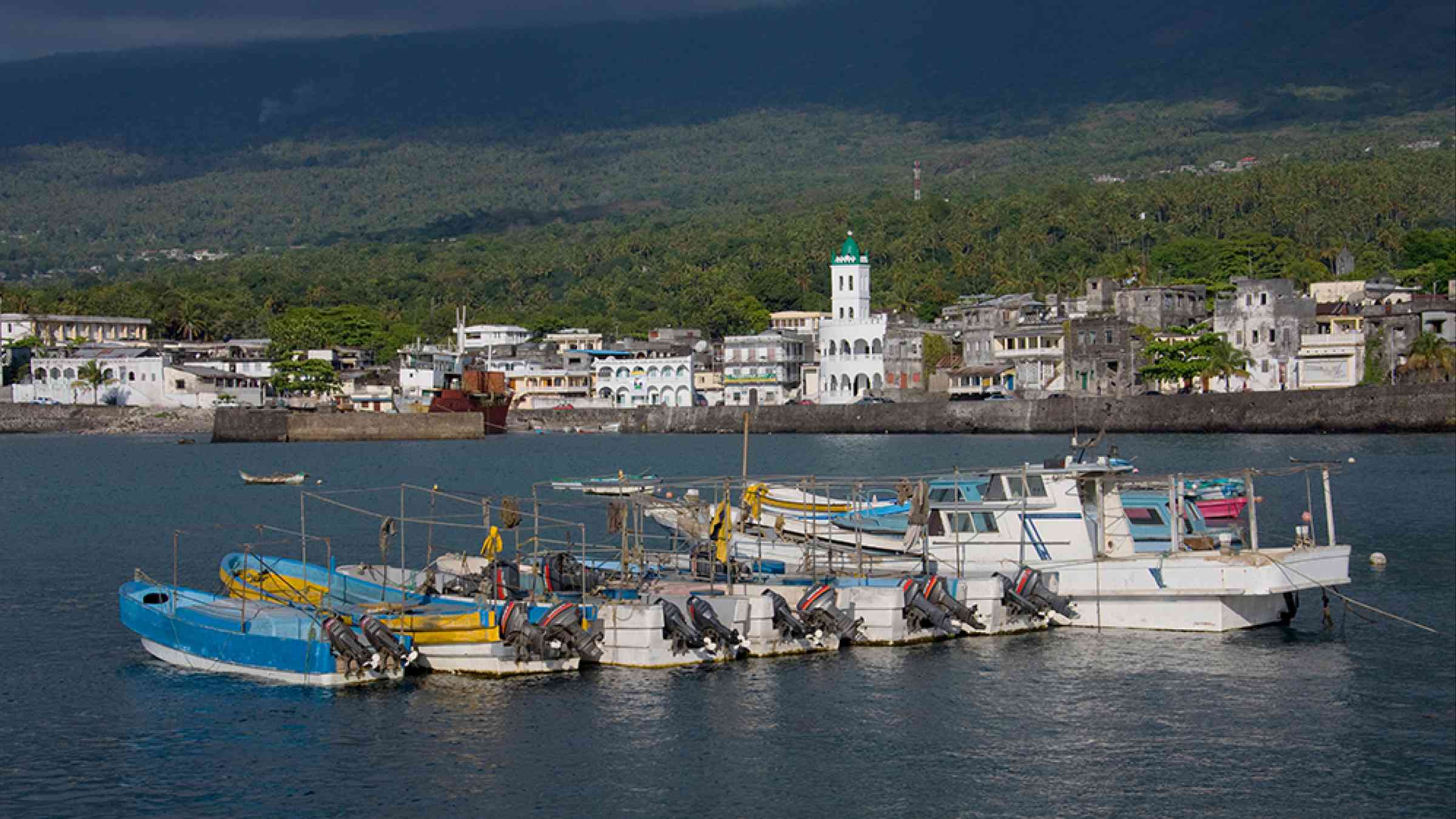Consultation on the National DRR Platform and National DRR Strategy Kicks off in Comoros

Moroni, Comoros, 11- 12 October 2022, The United Nations Office for Disaster Risk Reduction, Regional Office for Arab States, organized the first consultative workshop on National Disaster Risk Reduction Platform and National DRR Strategy in Comoros, in collaboration with the General Directorate for Civil Security (DGSC) and the UN Country Team in Comoros.
This workshop is part of a series of planned consultations to review the status and functioning of the National DRR Platform and to develop a National DRR Strategy that integrates climate change and sustainable development in Comoros, as well as relevant regional and international policy frameworks.
As a small island developing State, as well as a Least Developed Country, Comoros faces recurrent disasters and extreme events like tropical cyclones and floods that keep rolling back the development gains of the country. These climate-related hazards will be exacerbated in intensity and frequency over the coming years and decades because of climate change.
The workshop saw the participation of the Minister of Interior Mahamoud Fakridine, representatives from the Islands' governorates, and the United Nations Resident Coordinator François Batalingay. “We cannot prevent the occurrence of hazards, but we can better anticipate risks associated with them and reduce their impact. The update of the National Strategy for Disaster Risk Reduction is a priority,” said Minister Fakridine in his opening remarks, highlighting the lessons learned from Cyclone Kenneth. “The update of the National DRR Strategy needs to be multi-sectorial and should include all relevant stakeholders.”
Organized less than a month before the COP27 kicks off, the workshop aimed at strengthening national coordination for resilience building, reviewing the mandates and actors of the National Platform for Disaster Risk Prevention and Reduction, the coordination mechanism for disaster risk reduction, including managing risk associated with man-made and natural hazards and draft a work plan for the development of the National Disaster Risk Reduction Strategy.
During the workshop a consultation on the structure and responsibilities of the National DRR Platform took place. A work plan to validate the proposed National DRR Platform and to develop the National DRR strategy was achieved.
The UNDRR technical assistance to Comoros is part of UNDRR’s flagship programme on Comprehensive Risk Management, which aims to strengthen synergies between disaster risk reduction (DRR) and climate change adaptation (CCA), identifying mutually beneficial opportunities across policies and programmes and enhancing the capacity of governments across-sectoral planning while ensuring vertical alignment. The programme contributes to the achievement and implementation of Target E of the Sendai Framework while increasing synergies with the implementation of the Paris Agreement.
A National Disaster Risk Reduction Strategy is essential for implementing and monitoring a country’s risk reduction priorities by setting implementation milestones, establishing key roles and responsibilities of government and non-government actors, identifying technical and financial resources, and developing/establishing monitoring, evaluation, and reporting mechanisms. On the other hand, a National Disaster Risk Reduction Platform is fundamental to coordinate and develop national activities; provide and mobilize knowledge, skills, and resources required to mainstream DRR and resilience building into development policies, planning, and programmes; support the local-level implementation of DRR and climate actions; and be an advocate of DRR and synergies with CCA at different levels.